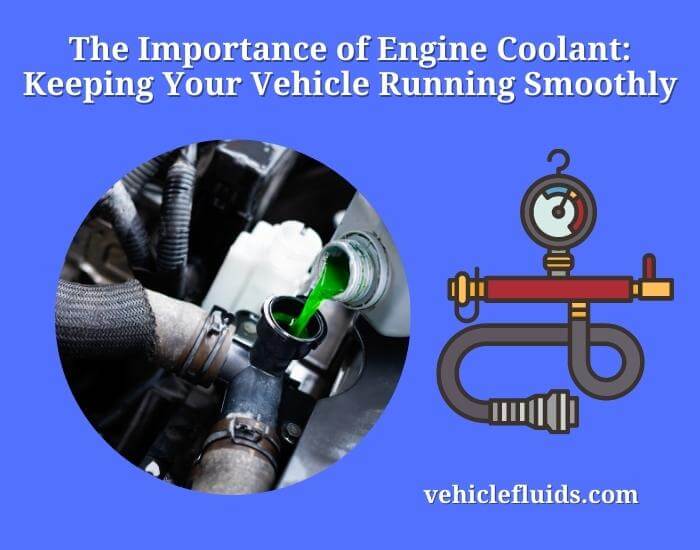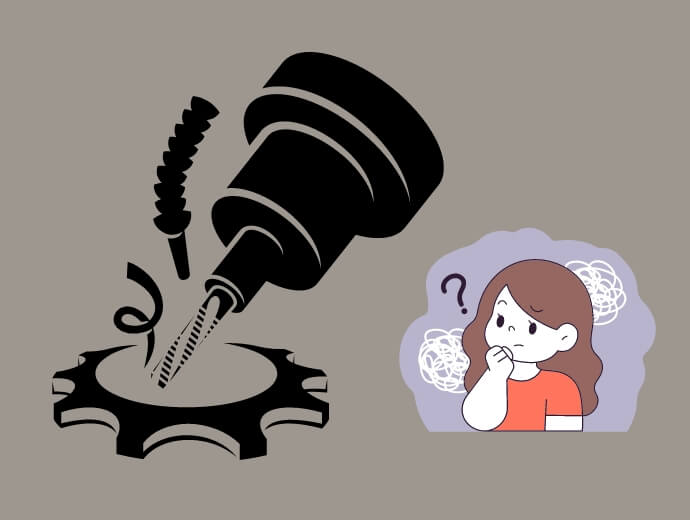A vehicle’s engine system is a complex network of components that work together to ensure its proper functioning. One of the most crucial components of this system is the engine coolant. Engine coolant, also known as antifreeze, is a liquid that flows through the engine to help regulate its temperature.

It is an essential component that helps to prevent the engine from overheating, lubricates engine components, and prevents corrosion and rust in the cooling system.
Without engine coolant, your vehicle’s engine could fail, leaving you stranded on the side of the road. Therefore, it’s vital to understand the importance of engine coolant and ensure that it is well-maintained and replaced regularly.
Why Engine Coolant is Important?
As mentioned earlier, engine coolant plays several critical roles in the proper functioning of your vehicle. Let’s look at these roles in detail.

Preventing the Engine From Overheating
The engine produces a lot of heat as it runs. This heat can cause the engine to overheat, which could lead to engine damage or failure. Engine coolant helps to regulate the temperature of the engine, ensuring that it doesn’t overheat. The coolant absorbs the heat and carries it away from the engine, preventing any damage.
Lubricating Engine Components
The engine is made up of various metal components that move against each other. Without proper lubrication, these components can wear down and cause damage. Engine coolant helps to lubricate these components, reducing friction and wear and tear.
Preventing Corrosion and Rust in the Cooling System
The cooling system in your vehicle is made up of metal components that are prone to rust and corrosion. If left unchecked, this can lead to leaks and other issues in the cooling system. Engine coolant contains additives that help to prevent rust and corrosion, protecting the cooling system and ensuring that it functions correctly.
Providing Consistent Engine Performance
Consistent engine performance is essential for a vehicle to run smoothly. If the engine is not performing correctly, it can lead to poor fuel economy, decreased power, and other issues. Engine coolant helps to regulate the engine’s temperature, ensuring that it runs consistently and smoothly.
Engine coolant is essential for the proper functioning of your vehicle’s engine system. It prevents the engine from overheating, lubricates engine components, prevents corrosion and rust in the cooling system, and provides consistent engine performance. It’s crucial to ensure that the engine coolant is well-maintained and replaced regularly to avoid engine damage or failure.
Types of Engine Coolant
There are three main types of engine coolants: traditional coolants, extended-life coolants, and organic acid technology (OAT) coolants. Let’s take a closer look at each type.
Traditional Coolants
Traditional coolants, also known as inorganic acid technology (IAT) coolants, are the most common type of engine coolant. These coolants contain a mixture of water, ethylene glycol, and additives. They provide excellent protection against rust and corrosion and are relatively inexpensive. However, they require replacement every two years or 30,000 miles.
Extended Life Coolants
Extended-life coolants, also known as organic acid technology (OAT) coolants, are a newer type of coolant. These coolants contain organic acid additives, which provide superior protection against rust and corrosion. They also have a longer lifespan than traditional coolants, lasting up to five years or 150,000 miles. However, they are more expensive than traditional coolants.
Organic Acid Technology (OAT) Coolants
OAT coolants are the latest type of engine coolant. They are made up of a combination of organic acid additives and water, which provide superior protection against rust and corrosion. They have the longest lifespan of any coolant, lasting up to ten years or 300,000 miles. They are also the most expensive type of coolant.
Choosing the Right Coolant for Your Vehicle
Choosing the right coolant for your vehicle is essential, and it’s crucial to follow manufacturer recommendations. Ensure you understand coolant compatibility and evaluate environmental concerns. While traditional coolants are the most common, extended life and organic acid technology coolants offer superior protection and longevity.
Maintaining and Replacing Engine Coolant
Maintaining the engine coolant in your vehicle is crucial to ensure proper engine performance and prevent engine damage or failure. Here are some tips for maintaining and replacing engine coolant.
Check Coolant Levels
Check the engine coolant level regularly. The coolant should be between the minimum and maximum marks on the coolant reservoir. If the level is low, add a 50/50 mix of coolant and distilled water to the reservoir. Do not add plain water, as this can lead to mineral buildup and corrosion in the engine.
Check Coolant Color and Condition
Check the coolant color and condition. Coolant should be bright in color and free of debris or rust. If the coolant is discolored or contains debris or rust, it’s time to flush the system and replace the coolant.
Replace the Coolant
The frequency of replacing the engine coolant depends on the type of coolant used. Traditional coolants require replacement every two years or 30,000 miles, while extended-life coolants last up to five years or 150,000 miles. Organic acid technology (OAT) coolants last up to ten years or 300,000 miles. Follow the manufacturer’s recommendations for replacing the coolant.
Have the Cooling System Inspected
Have the cooling system inspected by a qualified mechanic regularly. A professional mechanic can check for leaks, corrosion, and other issues that could lead to engine damage or failure.
Maintaining and replacing the engine coolant is crucial to ensure proper engine performance and prevent engine damage or failure. Check the coolant levels, color, and condition regularly, replace the coolant according to the manufacturer’s recommendations, and have the cooling system inspected by a qualified mechanic regularly. These simple steps can help keep your vehicle running smoothly and avoid costly repairs.
Last Remarks
Engine coolant plays a vital role in keeping your vehicle running smoothly. It’s essential to ensure that the coolant is well-maintained and replaced regularly to avoid engine failure and other issues.
The importance of engine coolant, choosing the right type of coolant, and maintaining and replacing it as required, you can enjoy a vehicle that runs smoothly and lasts longer. Don’t take engine coolant for granted; prioritize its maintenance and replacement to get the most out of your vehicle.
If you want to know can a car get an MOT with an oil pressure light? Click here to know the answer.
